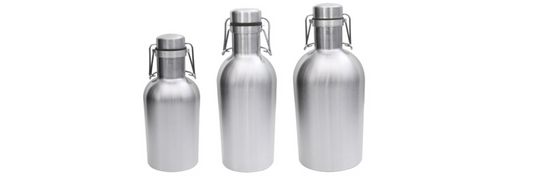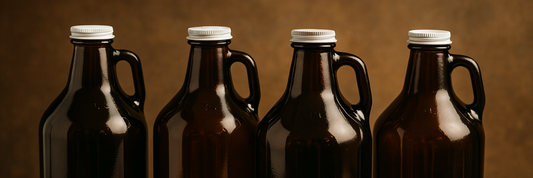Paper cup lids are everywhere, keeping our drinks safe and preventing spills. But there's more to them than meets the eye. Let's look at the interesting world of paper cup lids, from eco-friendly materials to branding opportunities in out today article.
Is paper cup lid really necessary?
What is paper cup lid?
Paper cup lids are frequently used with paper cups. They are a type of packaging, that is referred to as primary packaging because they come into direct contact with the food or beverage.
The paper cup lid is a tiny, single-use covering that securely fits over the top of a paper cup. Usually constructed of paperboard or plastic, it could contain a tiny hole or opening that the user can use to sip from the cup.
What Type of Paper Cups Need Lids?
The use of lids is beneficial for all varieties of paper cups; however, the sort of lid required will vary depending on the purpose of the cup. Here's how it works:
Hot Beverages:
- Hot chocolate, tea, and coffee: These all need lids to avoid spills and maintain the temperature of the beverage.
- Soup: Soup, like hot beverages, requires a top to prevent spills and keep the heat in.
Cold Beverages:
- Iced coffee, tea, smoothies, and slushies often benefit from lids having straw holes for simple consumption on the go.
- Water and soda: While not necessary, lids can assist in minimizing spills and keep dust and insects out.
What are the different types of cup lids?
Materials of Paper Cup Lids
Paper cup lids can be made from a variety of materials, each with its own advantages and disadvantages:
- Paperboard: The most popular material for paper cup lids is this one. It is reasonably priced and composed of recycled paper pulp. In order to increase their water resistance, paperboard lids are frequently covered with a thin layer of wax or plastic.
- Plastic: Lids made of plastic are also widely used. They are not biodegradable, but they are strong and resistant to water. Typically, polystyrene (PS) or polyethylene terephthalate (PET) are used to make plastic lids.
- Bagasse: This substance is derived from the fibrous residue that remains after processing sugarcane. Bagasse lids are a more environmentally friendly choice than paperboard or plastic because they are compostable and biodegradable.
- Bamboo: Paper cup lids can be made from bamboo, a sustainable material that grows quickly. Bamboo lids have an inherent antibacterial property and are compostable and biodegradable.
- Corn Starch: Paper cup lids that are compostable and biodegradable can be made using corn starch, a natural polymer. Other materials like bagasse or bamboo are sometimes used with them to increase the strength and longevity of corn starch lids.
Common Sizes of Paper Cup Lids
Paper cup lids come in a variety of sizes to fit different types of paper cups. The most common sizes are:
- 80mm: This size is suitable for small paper cups, such as those used for espresso or tea.
- 90mm: This size is suitable for medium paper cups, such as those used for coffee or hot chocolate.
- 100mm: This size is suitable for large paper cups, such as those used for iced coffee or smoothies.
- 120mm: This size is suitable for extra-large paper cups, such as those used for milkshakes or slushies.
Common Type of Paper Cup Lids
Paper cup lids come in a variety of types to meet different needs:
- Flat Lids: These are the most common type of paper cup lid. They are simple and inexpensive, and they are available in a variety of sizes and materials. Flat lids are suitable with Cold drinks like water, soda, juice, and iced tea.
- Domed Lids: These lids have a dome shape that helps to keep spills and splatters at bay. They are often used for hot beverages such as Coffee, tea, smoothies, milkshakes, iced coffee, and iced lattes
- Straw Lids: These lids have a small hole for a straw. They are convenient for cold beverages like water, soda, juice, iced tea, smoothies, and milkshakes.
- Sipper Lids: These lids have a small spout that allows the user to drink without lifting the lid.
- Double-Walled Lids: These lids have two layers of material, which helps to insulate the beverage and keep it warm or cold.

What Are Benefits of Paper Cups Lids?
Paper cup lids offer several advantages, making them a popular choice for businesses and consumers alike. Here are some key benefits:
- Prevent Spills: This is the primary benefit of lids, especially for hot beverages or on-the-go consumption. They help prevent spills and messes, ensuring a cleaner and more enjoyable experience.
- Keep Drinks Warm: Lids act as insulators, trapping heat and preventing hot beverages from cooling down quickly. This is crucial for coffee, tea, and other warm drinks, ensuring they stay hot and enjoyable for longer.
- Protect from Contamination: Lids shield beverages from dust, dirt, insects, and other contaminants, improving hygiene and reducing the risk of bacteria growth. This is particularly important for beverages consumed outdoors or in crowded environments.
- Enhance Comfort: Lids provide a comfortable barrier between the hot cup and the user's hands, preventing burns and discomfort. They also make it easier to hold and drink from the cup, especially for children or those with limited dexterity.
- Improve Branding: Lids can be customized with logos, slogans, and other branding elements. This provides valuable advertising space for businesses and helps increase brand recognition.
- Convenience: Lids make it easy to transport and consume beverages on the go. They eliminate the need for saucers or coasters, reducing mess and clutter.
- Easy to Use: Lids are simple to use and readily available, making them a practical and convenient choice.
What Should be Aware of When Using Paper Cup Lids?
While paper cup lids offer several benefits, there are a few things you should be aware of when using them:
- Heat Resistance: Choose lids designed for hot or cold beverages depending on the intended use. Using the wrong type can lead to warping, leaks, or even burns.
- Proper Fit: Ensure lids fit snugly on the cups to prevent leaks and spills.
- Expiration Date: Check for expiration dates on lids, especially for those made of paperboard, to avoid potential contamination or deterioration.
- Safety: Be wary of lids containing harmful chemicals like BPA, especially when using them for hot beverage
Impact of BPA to human health
- Compliance with Regulations: The regulations for paper cup lids can vary depending on your location. Plastic lids are one of the plastic items banned. So be careful when it comes to materials for the pape cup lids.
How do I know if my food packaging is BPA free?
How to choose Paper Cup Lids for Your Coffee Shop?
Choosing the right paper cup lids for your coffee shop can be crucial for hygiene, branding, cost, and environmental impact. Here are some key factors to consider:
Size and Compatibility:
- Match cup sizes: Choose lids compatible with your cup sizes to avoid spills and ensure a proper fit.
- Variety for options: Consider offering different sizes for small, medium, and large coffee cups.
Material and Sustainability:
- Paperboard: A cost-effective option, but not as durable or leak-proof as other materials.
- Biodegradable or Compostable: Made from plant-based materials like bagasse or corn starch, these are eco-friendly options. Verify local composting facilities accept them.
- Reusable Lids: Promote sustainability by offering reusable lids for customers who prefer them.
Function and Features:
- Flat or Domed: Flat lids are suitable for cold drinks, while domed lids offer more space for hot beverages and prevent overflow.
- Straw or Sipper: Choose straw lids for cold beverages and sipper lids for hot drinks to prevent spills and burns.
- Double-Walled: Ideal for hot drinks, these lids provide additional insulation to keep beverages warm for longer.
Cost and Availability:
- Compare prices: Get quotes from different suppliers to find the best deals and consider bulk purchases for larger discounts.
- Check availability: Ensure the lids you choose are readily available and you can maintain consistent supply.
Frequent Asked Questions
Are paper cup lids recyclable?
It depends. The recyclability of paper cup lids depends on the material they are made from:
- Paperboard lids: Some paperboard lids are recyclable if they are not contaminated with food or beverage residue. However, they often have a thin plastic lining that can make them difficult to recycle.
- Plastic lids: Most plastic lids are not recyclable. They are typically made from #6 plastic, which is not widely accepted by recycling programs.
- Biodegradable and compostable lids: These lids are made from plant-based materials like bagasse or corn starch and are typically compostable in commercial facilities.
Why do cup lids have small holes?
The small holes in cup lids serve several purposes:
- Prevent spills: The holes allow air to flow into the cup as the beverage is consumed, which helps prevent the lid from popping off or spilling the contents.
- Improve ventilation: The holes allow steam to escape from hot beverages, which helps prevent the lid from fogging up and the beverage from becoming too hot.
- Facilitate straw use: The holes are large enough to accommodate straws, making it easier to drink beverages without removing the lid.
- Enhance hygiene: The holes allow air to circulate around the mouth of the cup, which can help to prevent the growth of bacteria.
Why do cup lids have buttons?
The buttons on cup lids are designed to be:
- Sipper lids: These lids have a small button that opens and closes a valve, allowing the user to sip the beverage without removing the lid.
- Recloseable: Some lids have buttons that allow them to be closed and reopened, which is convenient for on-the-go use.
- Spill-proof: The buttons on some lids create a tight seal around the straw hole, which helps to prevent spills.









